How ex-military man Tim helped thousands of Cyclone Idai victims
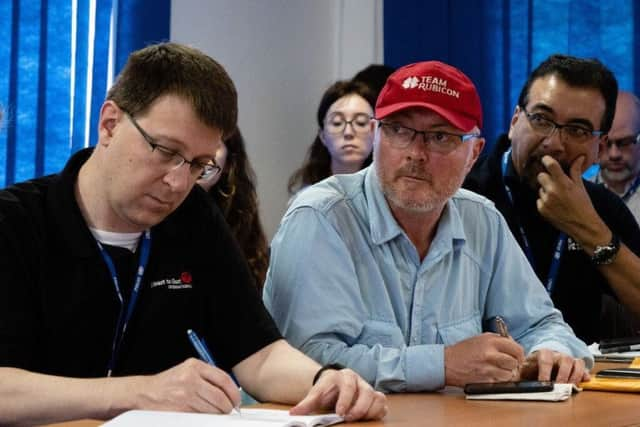

While public attention and media coverage in the UK was understandably taken up with the latest frustrating developments on the political paralysis surrounding Brexit during March, Tim Brear was among those with a very different focus as one of the world’s worst natural disasters for years was unfolding in Africa.
Brear, a former infantry officer in the Duke of Wellington Regiment who went on to a successful business career in financial services after serving in Northern Ireland in the 1980s, headed out to Mozambique to assist victims of Cyclone Idai, which caused severe flooding and killed more than 1,000 people, left thousands more missing and millions in desperate need of help as homes, crops and sources of clean water were wiped out – a situation that also led to a cholera outbreak.
Advertisement
Hide AdAdvertisement
Hide AdThe 56-year-old father-of-two from Ilkley headed out there as part of a small team for a disaster response charity called Team Rubicon, largely made up of former military veterans who use the organisational and endurance skills they have gained from the armed forces to ensure aid gets to those who need it most as soon as possible. The charity’s origins began in 2010 when two US Marines, Jake Wood and William McNulty, decided to act in Haiti in 2010 after traditional aid organisations struggled to establish relief efforts following a devastating earthquake, citing dangerous working conditions.
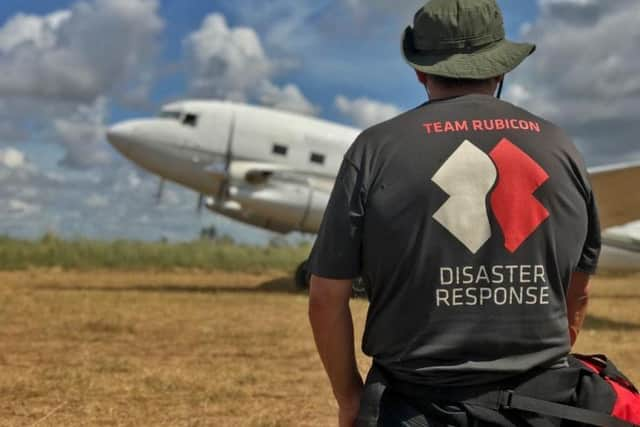

“The principle role is what we call ‘last mile logistics’,” Brear, who sold his stake in Harrogate-based financial services firm bdb in December 2017, explains. “Quite often, big aid agencies can get to a certain point but struggle to get to people in the most isolated or cut-off areas. Because of our military background, we are used to carrying things through difficult terrain so you can reach remote communities.”
Such assistance was desperately needed in Mozambique, where the damage was so catastrophic many people were left stranded in trees and rooftops. Team members even met one woman who had given birth on a roof surrounded by flood water. The cyclone also affected Malawi, Madagascar and Zimbabwe.
Brear had gone out to Mozambique with two other team members on an initial reconnaissance mission to establish what support would be needed. But after a mix-up with his luggage when they arrived in the largely-unaffected capital city of Maputo, he stayed behind while the others headed out and ended up playing an important logistical role as more Team Rubicon volunteers arrived and he worked to ensure both they and aid got out to the right places.
Advertisement
Hide AdAdvertisement
Hide Ad“By the time I had got my kit, I had started to develop relationships with government and other agencies,” he explains. “So I didn’t go to the supply end. It wasn’t what I wanted to do, but it wasn’t about me. The two guys who went up country were saying people had taken to the trees because of the flooding and had been followed by snakes that were also trying to escape the water. The waters receded fairly quickly but one of the main problems is that people rely on the harvest from the flood plains and the crops were washed away. There are one million people that are going to need feeding for a year as a result. Our teams flew into Maputo and it was my job to get them up country. We try to save every penny we can to make sure the money goes to the people who need it. So I was appealing to organisations to get our people out on military flights and civilian flights and was meeting directly with the UN.”
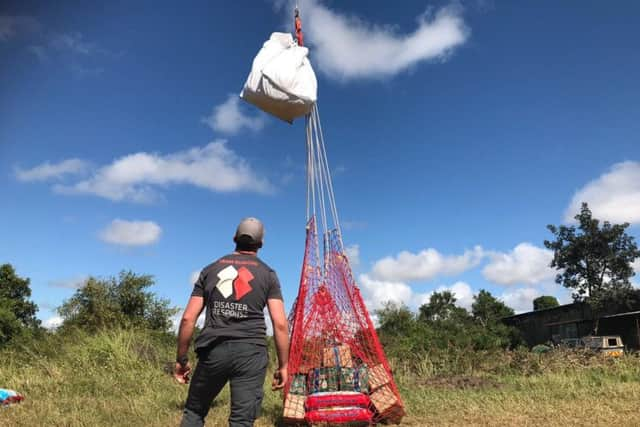

Almost two dozen aid workers from the UK arm of Team Rubicon UK ended up being heli-dropped into remote locations, conducting needs assessments, preparing locations for aid delivery and then getting it in by boat and helicopter. The team got life-saving food, cooking equipment and tarpaulins to the most remote areas. They distributed more than 150 tonnes of aid to over 13,000 people, while also clearing miles of terrain to open up routes and help other organisations and people through.
Brear says the United Nations wrote to Team Rubicon’s chief executive to say how effective the organisation’s work on the ground was.
One of the most important parts of the mission became trying to ensure clean water was available following a cholera outbreak as flood water receded that affected thousands of people and led to at least seven deaths. The Disasters Emergency Committee (DEC) described how desperate people had been drinking stagnant water from potentially-contaminated street puddles, while one shelter which was home to 3,000 people had just six toilets between them.
Advertisement
Hide AdAdvertisement
Hide AdAnother challenge facing aid agencies on the ground was ensuring food, water and supplies actually reached the right people. The United Nations announced last month it was investigating allegations that survivors in Mozambique were being forced to have sex with community leaders for food and Brear said during his time in the country, there were suspicions aid was being “siphoned off” before it reached the Team Rubicon volunteers responsible for taking it on the last leg of its journey.
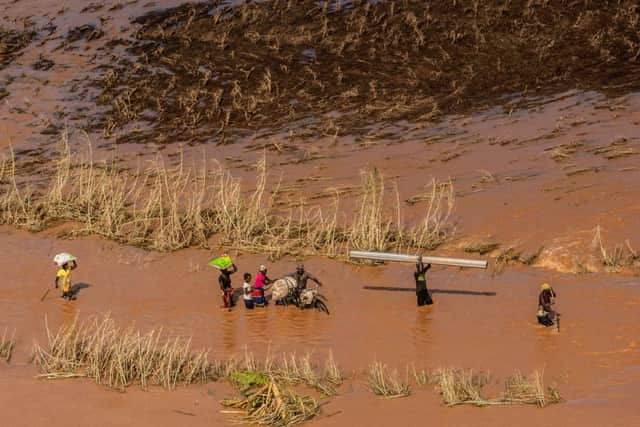

While a DEC appeal raised over £18m from the British public to help charities on the ground, Team Rubicon was not one of the beneficiaries of the money – meaning financing its operations was a challenge. Brear says he rang the Chris Evans radio show on Virgin to raise awareness about what they were doing in the country while he was out there, a conversation which resulted in listeners donating hundreds of pounds to their cause.
“One of the biggest frustrations was we were short of cash and when Notre Dame caught fire, there was so much money pledged,” he adds. “You wish some of it was heading in our direction. When I left, there were still 200,000 people to be reached a month after it happened. Communities were wiped out by the flooding and they don’t even know how many people are missing.”
Brear had initially been due to stay out in Mozambique for two weeks but ended up being in the country for a month – returning only recently so he could take part in the London Marathon to raise funds for another charity, animal welfare organisation the Born Free Foundation. The country was hit by a second cyclone within days of Brear’s return to the UK, killing dozens more people and causing yet more destruction.
Advertisement
Hide AdAdvertisement
Hide AdThe trip was not Brear’s first visit to Africa with Team Rubicon. He had previously been out to Sierra Leone to help with disaster resilience planning. “African countries produce a minor amount of the causes of climate change but are the biggest sufferers of the consequences,” he says.
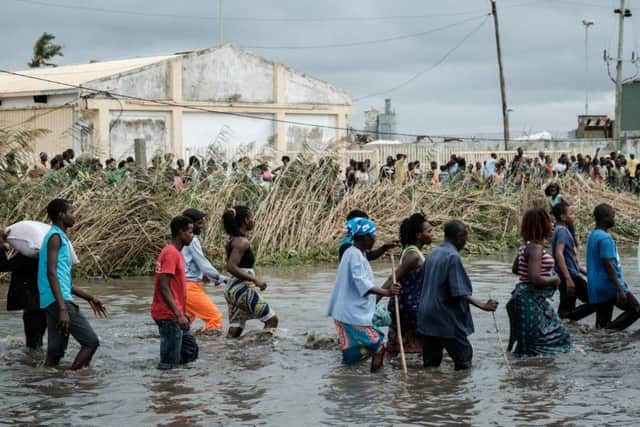

Brear says despite the challenges, going to Mozambique was a meaningful and cathartic experience. “The camaraderie and can-do attitude of the British Army is what is brilliant about it and that is what is brilliant with Team Rubicon. Making a difference is what drives us all.”
Search for more volunteers
Team Rubicon is looking for new volunteers in addition to extra funding to support their work, says Tim Brear.
Brear says: “We are always on the lookout for volunteers and they don’t have to be ex-military.
Advertisement
Hide AdAdvertisement
Hide Ad“You don’t have to be ex-military but you do have to be able to give two weeks at a time potentially to do these things and willing and able to live in pretty austere conditions.”
He says his family, including his two grown-up children, have been very supportive of his participation with the organisation.
“My kids are extremely proud of me for doing it and my wife has been hugely supportive back here in Ilkley.”
For more information, visit www.teamrubiconuk.org.